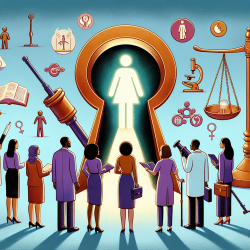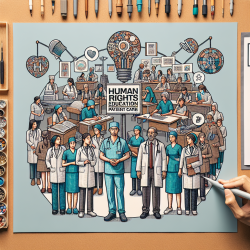The International Conference on Population and Development (ICPD) marked a pivotal moment in the advancement of sexual and reproductive health and rights (SRHR) as human rights. The conference's outcomes have provided a robust framework for challenging gender inequalities and promoting inclusive policies. As practitioners in this field, there are several ways to implement these insights to enhance your skills and drive meaningful change.
Understanding the ICPD Framework
The core of the ICPD paradigm shift was moving from merely controlling population growth to advancing SRHR as fundamental human rights. This shift included promoting gender equality and recognizing violence against women as a violation of human rights. The ICPD Programme of Action (PoA), supplemented by the Beijing Platform for Action and the Vienna Declaration, has been instrumental in shaping national laws, policymaking, and service delivery over the past 25 years.
Implementing ICPD Outcomes in Practice
As a practitioner, here are some strategies to implement the outcomes of the ICPD framework:
- Advocate for Inclusive Policies: Work towards creating legal and policy environments that recognize the rights of marginalized groups, including adolescents, LGBTIQ individuals, and people with disabilities.
- Promote Comprehensive Sexuality Education: Address policy and implementation barriers to provide comprehensive sexuality education that respects young people's rights.
- Enhance Community Engagement: Foster meaningful participation and community engagement to ensure that SRHR programs are inclusive and effective.
- Leverage Technology: Utilize technological advancements to improve access to SRHR services and information while safeguarding privacy and data security.
- Strengthen Evidence-Based Practices: Support research that addresses gender equality and human rights to guide policies and programming effectively.
Encouraging Further Research
The ICPD agenda emphasizes the importance of strengthening the evidence base for guiding policies. Practitioners are encouraged to engage in further research to address gaps in evidence related to equitable access, autonomy, dignity, safety, and discrimination. By doing so, you can contribute to a more comprehensive understanding of SRHR issues and inform future interventions.
The Role of Practitioners in Challenging Backlash
Despite significant progress, challenges remain due to ideological resistance against gender equality and SRHR. Practitioners play a crucial role in countering these challenges by advocating for sustained funding, programmatic commitment, and accountability. By building alliances with social movements and leveraging support from committed governments and progressive funders, you can help advance a progressive SRHR agenda.
The resilience of social movements underscores the importance of collective mobilization in achieving SRHR goals. As a practitioner, your efforts can contribute significantly to this ongoing struggle for equality and human rights.
To read the original research paper, please follow this link: Moving the ICPD agenda forward: challenging the backlash.










